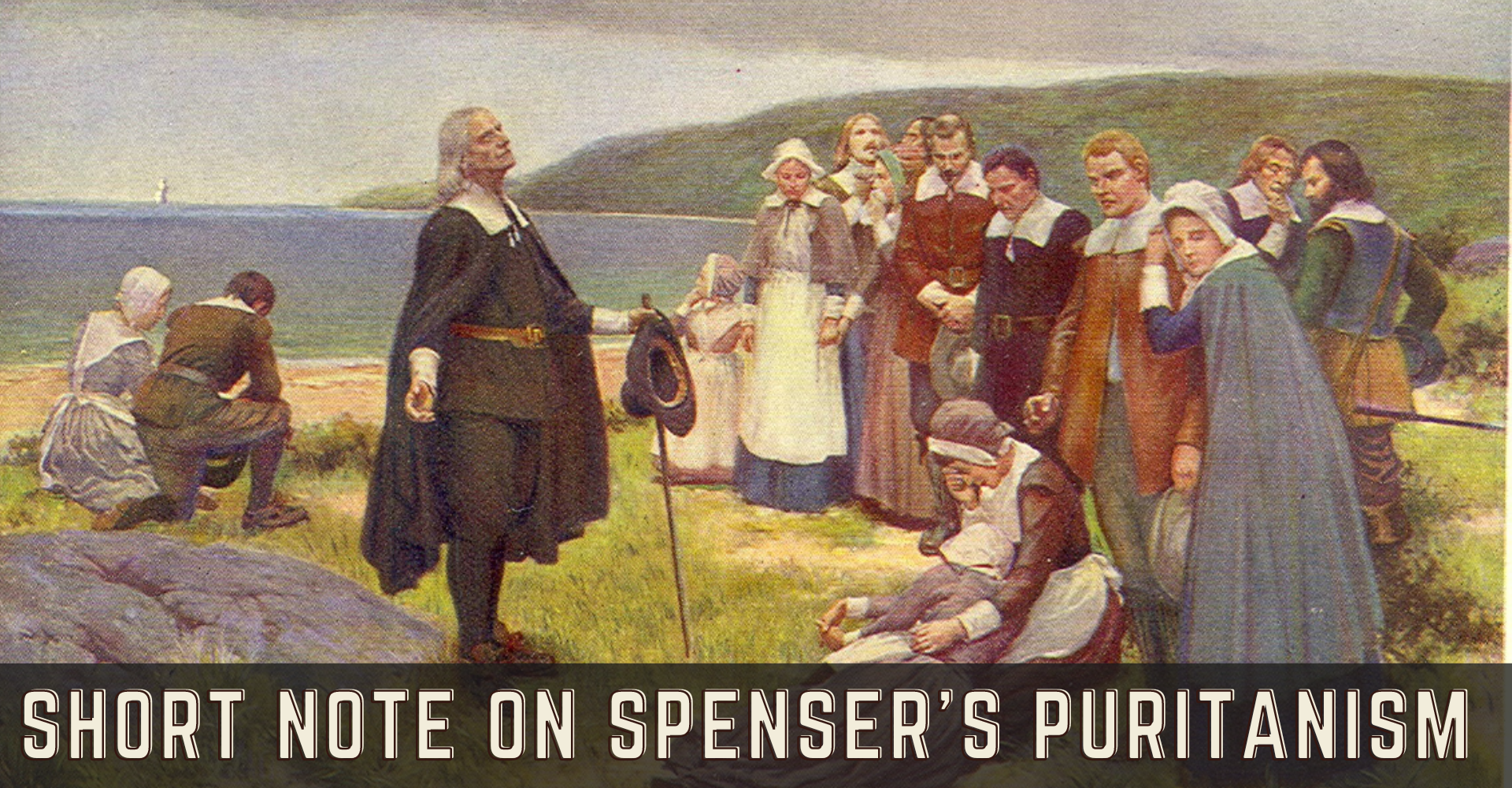Perhaps it will not be right to say that Spenser was a Puritan. Milton might greet him as our sage and serious poet. But that cannot mean that he has a Puritanic cast of mind. Milton was a Puritan, but his Puritanism was tempered by his Renaissance culture, by his passionate love of freedom. Political and religious, by his intoxicating sense of beauty. He might have sought to justify the ways of God to men. He did not share the bigotry, the narrowness and the self-righteousness of a Puritan Milton was a Puritan with a difference, and this ought not to be overlooked. Spenser says. “Fierce, warres and faithful loves shall moralize my song” Is that a ground for thinking that Spenser is a Puritan? He is going to tell stories, as he does in The Faerie Queene, but he reads a moral meaning into them. Any story may have moral. All that Spenser does is to make the moral of story manifest. But that does not and cannot make him a Puritan.
His aim is to blend allegory with romance, but he has not been able to keep up the allegory without a break. The story seems to be the main thing, and the allegory is subordinate. His moral seriousness has led some critics to assume that he is a Puritan. But, as we see. He often discards his moral seriousness. even his moralizing, when he goes on with his story. Self-righteousness is a sort of obsession with a Puritan. To none of his characters in Die Faerie Queene. Spenser ascribes this sense of self-righteousness not even to Prince Arthur who is the perfection of virtues. And it is knightly virtue which is embodied in Prince Arthur- and knightly virtues will have little appeal to a Puritan. Then again a Puritan has a hunting sense of sin and corruption. We may take the Red cross knight who lapses, but who has little sense of sin until his eyes are opened. A Puritan could not have drawn such a character. The penance that the Red cross knight goes through-sackcloth and ashes- smacks rather of Catholicism than of Puritanism. Spenser denounces the Romish Church. But he has not been able to renounce the paraphernalia of its ritual and ceremony. He seems to have more leanings towards Catholicism which he denounces than towards Puritanism. What he does in the First Book of The Faerie Queene is to vindicate the Church of England, and the Church of England did not discard all the ritualism of the Romish Church if it dropped some of its doctrines. Then again Spenser draws freely upon classical myths and legends. And makes use of the idea of Plato and Aristotle: a conscientious Puritan could not have done that. Perhaps Spenser could have nothing to do with Puritanism in his time Puritanism was not a growing force. Percival seems to put it the right way. “Spenser’s Christianity did not destroy his paganism, neither did his paganism destroy his Christianity.
Milton‘s Puritanism saw no beauty in paganism the Epicureanism of the neo-pagan sees no truth in religion, in Spenser, the beauty of paganism exists side by side with, but distinct from the truth of religion. Having drawn this sharp line in essentials Spenser leaves his fancy to range without restraint, but always on the right side of the line. To him, therefore, as to Dante. the confusion of heathen mythology with the mere names or imagery of Christianity, gives no shock.”
PLEASE HELP ME TO REACH 1000 SUBSCRIBER ON MY COOKING YT CHANNEL (CLICK HERE)











